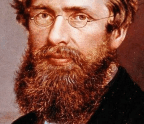
Hubris permeated the London air in late September 1923. The leaders of the British Dominions – the largely self-governing ‘white settler' colonies – had arrived in London for the Imperial Conference. It was convened to debate how foreign policy would be determined across the various territories. But it was also a celebration of continuing imperial expansion.
South African prime minister Jan Smuts expressed his delight that the British gains from Germany had at last created an ‘all-red' route from the Cape to Cairo. The empire, he declared, had “emerged from the awful blizzard of the war quite the greatest power in the world”. Prime minister Stanley Baldwin's foreign secretary, former Viceroy of India Lord Curzon, agreed, declaring that: “The British flag has never flown over a more powerful empire.”
They were right. The collapse of the rival empires of Russia, Germany, Austro-Hungary and the Ottomans, and the retreat into isolation of the US, had left the British empire the sole global superpower. And on 29 September 1923, as Dominion leaders arrived for the conference, the Palestine Mandate became law, bringing Palestine and Transjordan under British administration – and the British empire reached what would prove to be its maximum territorial extent. Some 460 million people – a fifth of the world's population – woke that morning as subjects of Britain's king-emperor, George V. This dwarfed the populations of the US (112 million), Soviet Union (135 million) and the French empire (93 million).
Twenty-five years earlier, the Victorians had produced a stamp with a map of the world and the legend, “We hold a vaster empire than has ever been”. But under the terms




